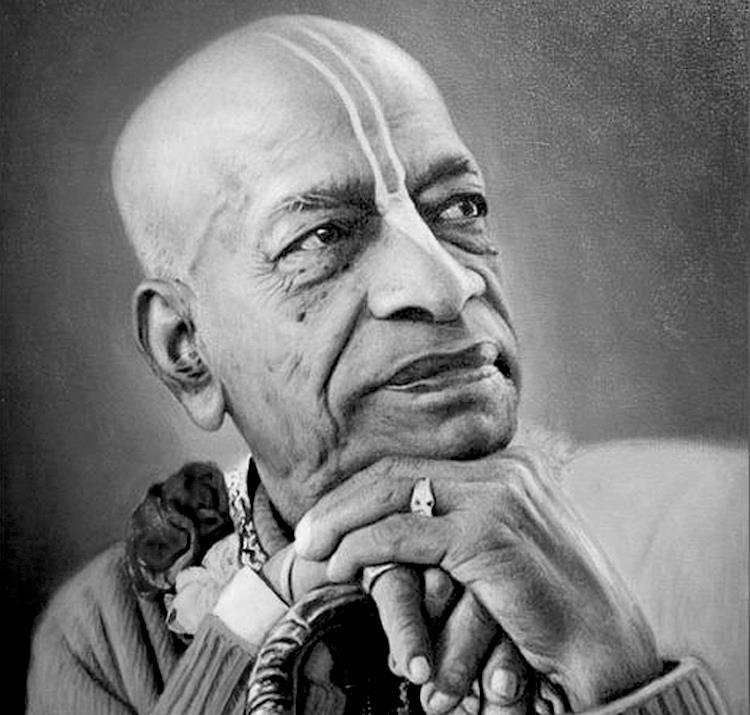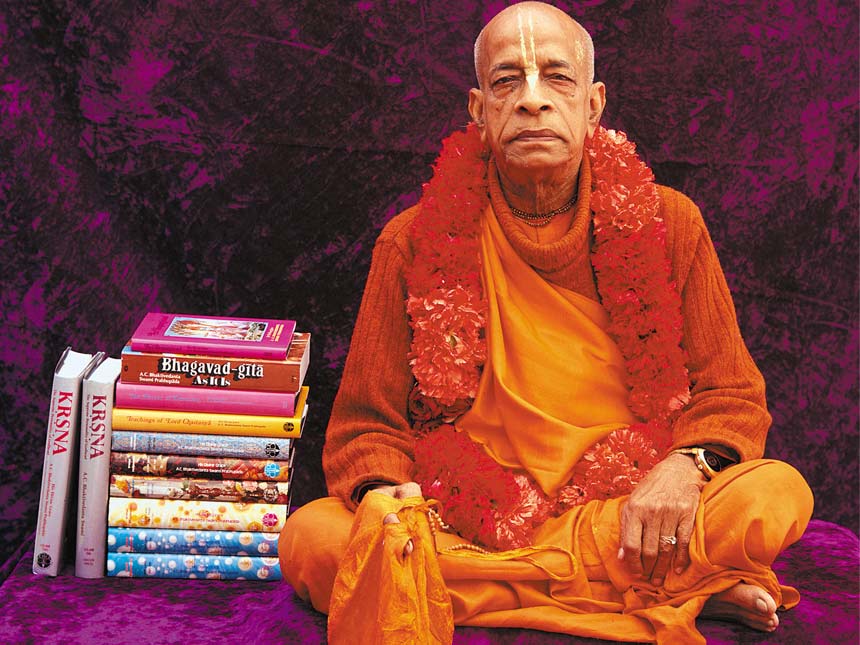
His Divine Grace A.C. Bhaktivedanta Swami Prabhupada
Founder-Acharya of the International Society for Krishna Consciousness (ISKCON)
The Life and Mission of Srila Prabhupada
His Divine Grace A.C. Bhaktivedanta Swami Prabhupada (1896-1977) is widely regarded as the most distinguished teacher of Indian religious and philosophical thought. His mission was to teach the science of Krishna consciousness as explained in the Bhagavad-gita and other Vedic literatures.
Born in 1896 in Calcutta, India, he lived for seventy years as a householder before accepting the renounced order of life (sannyasa) in 1959. In September 1965, at the age of seventy, Srila Prabhupada came to New York City with forty rupees and a few sets of his books on a cargo ship. He was virtually unknown in America, but he was carrying the most valuable gift: the eternal wisdom of the Vedas and an unwavering faith in his spiritual master's order to bring the teachings of Lord Krishna to the English-speaking world.
Before coming to America, Srila Prabhupada had written a commentary on the first canto of Srimad-Bhagavatam and was the founder and editor of Back to Godhead magazine, which is still being published by his disciples today.
After founding ISKCON in New York in 1966, Srila Prabhupada guided the Society and saw it grow to a worldwide confederation of more than one hundred temples, ashrams and cultural centers. He also initiated over 5,000 disciples and inspired the development of a wide variety of educational, cultural and agricultural projects.
Srila Prabhupada's most significant contribution, however, is his books. He authored over seventy volumes on the Krishna tradition, which are highly respected by scholars for their authority, depth, fidelity to the tradition, and clarity. Several of his works are used as textbooks in numerous college courses. His writings have been translated into over fifty languages. The Bhaktivedanta Book Trust, established in 1972 to publish the works of His Divine Grace, has thus become the world's largest publisher of books in the field of Indian religion and philosophy.
In just twelve years, despite his advanced age, Srila Prabhupada circled the globe fourteen times on lecture tours that took him to six continents. Yet this vigorous schedule did not slow his prolific literary output; his writings constitute a veritable library of Vedic philosophy, religion, literature and culture.
His Eternal Legacy
Srila Prabhupada's greatest achievement is that he successfully transplanted the ancient wisdom of Vedic India into the fertile ground of the Western world. His books, temples, and disciples continue to spread Krishna consciousness throughout the world, fulfilling his mission to share this spiritual knowledge with all of humanity.
The International Society for Krishna Consciousness, which he founded, continues to grow and flourish under the guidance of his disciples and grand-disciples, carrying forward his vision of a spiritual renaissance that can bring peace and happiness to all living beings.

Continue the Mission
Learn more about Krishna consciousness and join our community in following Srila Prabhupada's teachings. Discover the wisdom that has transformed millions of lives around the world.
